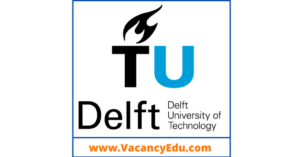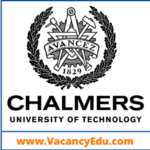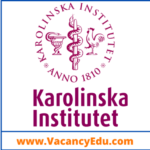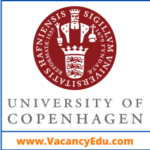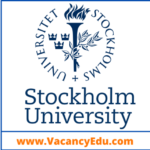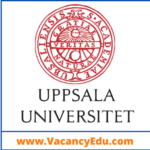Delft University of Technology (TU Delft), Netherlands invites online Application for number of Fully Funded PhD Degree at various Departments. We are providing a list of Fully Funded PhD Programs available at Delft University of Technology (TU Delft), Netherlands.
Eligible candidate may Apply as soon as possible.
(01) PhD Degree – Fully Funded
PhD position summary/title: PhD Position on Mechanochemistry for Soft Matter Imaging
Soft matter such as polymers and hydrogels are incredibly versatile materials. Their use in metamaterials and bio-implants often puts them under mechanically challenging conditions and understanding their material mechanics in real time remains a major challenge. In this project you will work on developing new chemistry for visualising the mechanical phenomena in soft matter.
Working closely with experts in mechanics, we are developing robust imaging and sensing tecjhniques which can “report” internal stresses directly through imaging. In this PhD project, you will combine synthetic, characterization and imaging tools to understand how chemistry-based imaging connects to continuum mechanics and allows us to characterize and improve high performance soft materials.
Deadline : 12 Oct 2025
(02) PhD Degree – Fully Funded
PhD position summary/title: PhD Position on Mechanics of Self-Sensing Soft Matter with Machine Learning
Soft matter such as polymers and hydrogels are increasingly central to applications in soft metamaterials and bio-implants. Yet, understanding their mechanics in real time remains a major challenge. Their behavior involves nonlinearities, viscous effects, and multiphysics coupling, which are difficult to capture in-situ with traditional methods. Typically, imaging is possible in such application, but full mechanical characterization is not.
Our vision is to change that. Working closely with chemists, we have developed mechanosensing chemistry that enables soft materials to “report” their internal stresses directly through imaging. In this PhD project, you will combine continuum mechanics, machine learning, experimental imaging, and mechanical testing to design and characterize self-sensing soft matter capable of revealing its mechanics from the inside out.
Deadline : 12 Oct 2025
View All Fully Funded PhD Positions Click Here
(03) PhD Degree – Fully Funded
PhD position summary/title: PhD Position in Biocatalysis – Evolving Enzymes for New Chemistry
The research group headed by PI Dr. Reuben Leveson-Gower is hiring a PhD student to work on a project in the field of Biocatalysis. Motivated by the immense potential that enzymes represent to greatly improve the sustainability of the chemical and pharmaceutical industries, our group seeks to engineer enzymes that can facilitate new reactions that were previously not known in nature. To this end we will adapt existing enzyme architectures (i.e. naturally occurring cofactors and catalytic machinery) to conduct new catalytic tasks through a combination of chemical intuition and enzyme engineering.
The PhD project will involve bioinformatic selection of candidate enzymes, employing a combination of ‘off-the-shelf’ tools based on both sequence and structure. These enzymes will be produced, screened and the best variants subject to protein engineering campaigns. Once highly active variants are produced, the molecular mechanisms by which they have achieved their improvements will be investigated. These insights will form a key part of the ‘build, test, learn’ cycle to accelerate the development of further biocatalysts for related ‘new-to-nature’ reactions. The reults will reveal the determining characteristics of enzyme catalytic promiscuity, so that it can harnessed with increasing efficiency. Ultimately, the research aims to develop practically applicable catalysts for the efficient and benign synthesis of societally important molecules.
Deadline : 26 Oct 2025
(04) PhD Degree – Fully Funded
PhD position summary/title: PhD Positions on Quantum Photonics with Color Centers
Are you motivated to discover the qubits that build the quantum information processing machines of the future? Do you want to embed qubits in scalable systems and help bring quantum technology to real-world applications? We are seeking a PhD researcher to work at the interface between color center physics and integrated photonics!
Color centers have proven to be one of the most fruitful platforms in the quantum information era, enabling breakthroughs such as memory-enhanced quantum communication, entanglement-based quantum networks, long-term quantum information storage, and complex quantum simulations. While these demonstrations point to a wide range of applications, critical challenges regarding color center physics and their large-scale integration into systems remain untackled
As a PhD student in the Errando-Herranz’s group, you will work towards addressing the main challenges in the field by working on experiments involving integrated photonics and color center qubits. You will focus on device design and characterization, delving into the complex physics of color centers, and developing technology based on integrated photonic circuits for quantum applications.
Deadline : 5 Oct 2025
(05) PhD Degree – Fully Funded
PhD position summary/title: PhD in Microstructure Modeling and Environmental Index Characterization of Sustainable Concrete
We are seeking an ambitious and motivated PhD candidate to contribute to the design, testing, and evaluation of next-generation sustainable concretes based on CO₂-sequestered magnesium silicates. The research will combine experimental investigations with numerical modeling to understand hydration, microstructure formation. In addition, the candidate will perform environmental index characterization (including CO₂ balance, life-cycle impacts, and circularity indicators) to position these materials within the broader framework of sustainable construction.
The successful candidate will be based in the Microlab (Section Materials & Environment), Faculty of Civil Engineering and Geosciences, Delft University of Technology (TU Delft), and will collaborate closely with other academic and industrial partners across Europe. This provides a unique opportunity to work in a dynamic, international research environment at the intersection of materials science, sustainability, and numerical modeling.
Deadline : 30 Oct 2025
Polite Follow-Up Email to Professor : When and How You should Write
Click here to know “How to write a Postdoc Job Application or Email”
(06) PhD Degree – Fully Funded
PhD position summary/title: PhD Position Application of eXtended Reality for City Logistics
Cities across Europe are rethinking how people and goods move through urban space. eXtended Reality (XR) technologies offer powerful ways to engage citizens, design inclusive interventions, and support data-driven decisions. At the department of Transport and Planning, you will play a central role in exploring and testing XR-supported mobility solutions within real-world pilot projects deployed in European cities.
In this position, you will develop VR-based immersive environments to test and evaluate urban mobility interventions (e.g., mobility hubs). You will design experiments to capture behavioural, cognitive, and physiological insights that deepen our understanding of how mobility users experience and respond to these interventions. A central part of the research will be to develop XR methods for incorporating diverse citizen perspectives into mobility design and planning, ensuring accessibility, inclusivity, and user acceptance.
You will also explore innovative AR applications to support intuitive navigation in redesigned urban spaces, such as bicycle parking. An AR-supported parking system will be developed and tested to provide users with real-time information on available spots, while also offering incentives for responsible parking behavior to improve efficiency and user experience.
Your home base will be the department of Transport & Planning and Mobility in eXtended Reality Lab, at the faculty of Civil Engineering & Geosciences. Our diverse team of PhDs, postdocs, project managers and professors all share the ambition to develop smart, sustainable, and equitable mobility systems. Our unique 12 collaborative labs develop and deploy the latest technology, including sensing, data analytics, modelling, simulation, artificial intelligence, and machine learning, and function as dynamic hubs where innovative scientific research is translated into real-world impact. Ours is an open, inspiring and friendly team, where we share knowledge and help each other. And you will get all the support and training you need to develop and grow in your career.
Deadline : 12 Oct 2025
(07) PhD Degree – Fully Funded
PhD position summary/title: PhD Position Find2Fix: Reducing Software Errors Using Transparant AI
You will research the state-of-the-art in AI and apply it to real-world software problems at our industrial partners: ASML and DCODIS (a start-up). This is technically challenging applied research with as main outcome a proof-of-concept tool that allows developers to quickly find and fix software errors including security vulnerabilities. You will innovate the Find2Fix pipeline by making the different steps, including found issues and suggested patches, easier to understand using interpretable AI using state machine models and LLM-based explanations. You will provide the community with the first tool for self-healing software that is useful for research, education, and industrial use. Your research will be published and presented at international AI, software engineering, and security venues.
The position is focused on discovering new errors using behavioral models learned from software. You will extend fuzzing technology by learning such models in real-time and using them to: guide the fuzzer, discover logical faults, and pin-point their root cause. This builds on the works of the cyber analytics lab (www.cyber-analytics.nl) and CISElab (www.ciselab.nl) at TU Delft.
Deadline : 26 Oct 2025
(08) PhD Degree – Fully Funded
PhD position summary/title: PhD Position on Unlocking Flexibility in Electricity Markets via Model-Predictive Control
Battery storage systems form a pivotal complement to wind and solar power in climate-neutral power systems. They can deliver a range of services, ranging from arbitrage (charging the system during low-price periods and discharging during high price periods) to congestion management and system services. Extracting all benefits from these assets, which becomes ever more important as more batteries enter the power system, requires state-of-the-art decision support tools. These mathematical models help battery owners make strategic decisions, such as when to charge and discharge or on which electricity markets to focus.
In this PhD trajectory, we therefore focus on a key challenge in this domain: the design of next generation decision support tools for battery operators, focusing on the participation in multiple consecutive short-term electricity markets and congestion management.
To address this question, you will develop state-of-the-art model predictive control tools to guide market participation decisions. Starting from existing models, you will first focus on hedging decisions with respect to the uncertainty on the battery model itself. To this end, you will explore concepts such as distributionally robust chance constrained optimization. Second, you will explore how data-driven models capturing the state-of-health and degradation can be integrated in the battery model. You will develop these machine learning-based proxies together with a postdoctoral researcher working in this project (see below), leveraging data from experiments in our project. Third, you will explore how local connection capacity markets and novel connection agreements can be integrated in the decision support tool and how these affect the battery owner’s business case.
Deadline : 1 Nov 2025
Click here to know “How to Write an Effective Cover Letter”
(09) PhD Degree – Fully Funded
PhD position summary/title: PhD Position Biophysical Studies of Mechanosensing ion Channels in Artificial Lipid Bilayers
Would you like to monitor the activity of single mechanosensitive membrane channels being inserted into artificial cell membranes? This will be the focus of a PhD project that will use biophysical tools combined with cell-free protein synthesis. A microfluidics system with freestanding lipid bilayers will enable the electrical monitoring of ion channels while a mechanical load is directly applied. The knowledge generated by this project will contribute to making synthetic cells which are responsive to the environment. The general goal is to advance (mechano)sensing in synthetic cells through optimization of ion channels incorporation and activity in lipid bilayers. The project sits at the interface of biophysics, engineering and biochemistry. The PhD student will be part of an interdisciplinary very active consortium called EVOLF.
Deadline : 13 Oct 2025
(10) PhD Degree – Fully Funded
PhD position summary/title: PhD Position for in Vitro Studies of Cell Division Driven by CDV Proteins
We aim to reconstitute the intriguing archaeal cell division (CDV) proteins in liposomes to form a filamentous ring that contracts and hence deforms a liposome from a sphere- to a dumbbell shape. Using biophysical tools (fluorescence, AFM, TEM,..), we will study the CdvABC proteins from an archaeum that lives at room temperature. We will study their membrane binding, sequential (dis)assembly, and propensity to form contractile rings in liposomes. The CDV genes will also be encoded on a genome that is expressed in the PURE system. The project is part of the EVOLF consortium. We search an applicant with a biophysics background.
We are looking for outstanding experimentalists that are eager to participate in our research. The group aims at research at the highest international level. Candidates that fit into this environment are invited to apply. Experience in fields such as cell division, biophysics, single-molecule techniques, and optical imaging is welcomed. We foster diversity and female candidates are particularly invited to apply, since the gender balance recently declined with the departure of quite some female postdocs and students.
Deadline : 5 Oct 2025
Connect with Us for Latest Job updates
(11) PhD Degree – Fully Funded
PhD position summary/title: PhD Position Data-driven Monitoring for Scale-up of a Biocatalytic Production Process Using UPOs
In this project, you will work on designing a scalable bioprocess using unspecific peroxygenase (UPO) enzymes to produce a panel of synthetically useful chemicals. The envisioned process design will include integrated up- and downstream processing, and you will apply real-time monitoring to achieve in-depth understanding of the bioconversion and accelarate process development time. As a part of the Doctoral Network, you will have the opportunity to participate in workshops and external research stays at partnering institutes/industry to develop technical and transferrable skills.
Deadline : 19 Oct 2025
Polite Follow-Up Email to Professor : When and How You should Write
(12) PhD Degree – Fully Funded
PhD position summary/title: PhD Position PV-integrated Bioprocesses for Sustainable Single Cell Protein Production
With rise in global population and over 840 million people worldwide projected to be undernourished by the year 2030, there is an urgent need to enhance food production through innovative solutions (RVO, Nederland, 2021). The challenge of sustainably feeding a growing global population is intensified as in many developing countries meeting minimum nutritional requirements for daily protein intake is a struggle. Simultaneously, consumer preferences are gradually shifting away from meat towards plant-based or SCP sources (collectively known as single-cell protein). In this respect, photovoltaic-driven SCP (PV-SCP) systems are identified to be more energy-efficient compared to traditional agriculture.
One promising alternative for food and feed applications is the cultivation of protein-rich microbial biomass from agrifood industrial waste residues. Beyond addressing protein security, single-cell protein production offers significant environmental benefit. Photovoltaic-driven SCP (PV-SCP) systems can be more energy-efficient compared to plant-based photoautotrophic systems, however the solar power-to-food SCP processes have several avenues for further improvement. Purple non-sulphur bacteria (PNSB) offer a compelling alternative using light as energy source. PNSBs are among the most metabolically versatile microorganisms, exhibiting phototrophic, chemotrophic, heterotrophic, and autotrophic growth modes. This metabolic versatility uniquely positions them to produce proteins, polyhydroxyalkanoates (PHAs), carotenoids, and coenzyme Q10 – key ingredients with applications in food and feed industries.
Deadline : 2 Nov 2025
(13) PhD Degree – Fully Funded
PhD position summary/title: PhD Position in Rare-Earth Ion Emitters for Quantum Networks (Experimental)
Are you interested in experimental quantum optics and information science? Would you like to work on groundbreaking physics experiments with real-world applications for quantum networks? If so, keep reading!
In the future, quantum networks could change the way we communicate, run apps in the cloud, and help scientific tools and sensors. To build such quantum networks, nodes based on solid-state emitters are promising contenders. One specific type of solid-state emitters, rare-earth ions (REIs) in host crystals, are particularly interesting. Because of their internal atomic structure, REIs can serve as excellent qubits, with long coherence time and emission in the visible and NIR spectrum. In the last few years, a lot of research has been done on proving REIs as qubits, including showing remote entanglement and quantum teleportation.
We are looking for PhD students to join the Hermans Lab and take the next step and build a next-generation quantum network. Can we control multiple of these REIs within the same chip and perform two-qubit gates between them? Using such coupled emitters, is it possible to run advanced entanglement protocols that can generate better entangled states faster? This research will open up many new interesting physics experiments, for example, generating spin-photon cluster states.
Deadline : 13 Oct 2025
(14) PhD Degree – Fully Funded
PhD position summary/title: PhD Position A Novel Electromagnetic Flow Meter for Turbulent Pipe Flow
Electromagnetic (EM) flow meters are widely used in industry for accurate measurements of turbulent pipe flows. In this project you explore novel fundamental approaches of an EM flow meter with a non-insulating pipe wall. The research will use existing MHD direct numerical simulations to investigate the flow physics. You will also construct a prototype to test the performance using an in-house 3T magnet. The turbulent pipe flow will be characterized using modern optical methods, over a large range of Reynolds numbers from 1E4 up to 1E6. The research co-funded by an industrial partner, who is the intended user of the research.
Deadline : 8 Oct 2025
(15) PhD Degree – Fully Funded
PhD position summary/title: PhD Position Physics of Cellular Robustness
Cells are often described as intricate machines where proteins work together in a tightly coordinated fashion to produce essential cellular functions. Yet evolution challenges this picture. Proteins that are crucial for a core function in one species can be completely absent in a close relative—while the function itself remains intact. So, how do cells achieve this robustness when their underlying molecular networks diversify so dramatically over evolutionary time?
Our lab has shown that in budding yeast, the polarity network can adapt to the loss of a key protein by losing three additional proteins. These seemingly destructive changes restore polarity through a collective adaptive response, reshaping many cellular processes at once rather than relying on a few individual proteins. This raises a fundamental question: how do complex cellular networks collectively ensure evolutionary robustness?
Deadline : 4 Nov 2025
(16) PhD Degree – Fully Funded
PhD position summary/title: PhD High Speed Generator Design
MeGa-Drive stands for Maritime Electrical Generator Atomic Drive. The MeGa-Drive project is funded by the subsidy schema maritime innovation projects (subsidieregeling maritieme innovatieprojecten). The project leader is Advanced Electromagnetics BV. We also collaborate with Allseas, who are developping an SMR for maritime applications.
The aim of the project is to research and develop a high speed generator system that converts the mechanical power coming from the thermal cycle of a Small Modular Reactor into electric power for the electric power system. To make the thermal cycle compact, the thermal cycle that drives the turbine – generator combination is a cycle with super critical CO2, which results a high speed compact turbine-generator combination.
Deadline : 9 Oct 2025
(17) PhD Degree – Fully Funded
PhD position summary/title: PhD Position – Semiconductor Materials for Quantum Technology
We are seeking for a motivated PhD candidate to join us at the Scappucci Lab and help us contribute to the development of next-generation semiconductor materials for quantum technology. Our team has pioneered advanced semiconductor materials for spin-based quantum computing, and with this project we aim to take a bold step forward.
As a PhD researcher, you will design and validate new germanium and silicon-based material stacks to overcome current limitations of semiconductor qubits. By enabling qubits that are faster, more coherent, and more uniform, your work will help tackle key challenges on the path toward scalable and useful quantum computers.
Deadline : 19 Oct 2025
(18) PhD Degree – Fully Funded
PhD position summary/title: PhD Position Dynamic Process Resilience Modeling and Assessment
The process industries are the backbone of modern society, producing the energy, chemicals, and materials that keep our world running. Yet, they are increasingly exposed to NaTech events—natural hazards that trigger technological accidents—which can have devastating impacts on people, infrastructure, and the environment. Addressing these risks is one of the urgent challenges for ensuring safe and sustainable industrial operations.
As a PhD candidate in Resilience Assessment and Management for NaTech-Exposed Process Industries at TU Delft, you will contribute to tackling this challenge directly. You will be part of a research project that aims to design an integrated framework for assessing and managing resilience, tailored specifically to the needs of the process industries. This framework will not only provide methods to evaluate vulnerabilities and risks, but also deliver practical tools to support decision-making under uncertainty.
In this project, you will combine engineering design principles with stakeholder engagement approaches, ensuring that the developed methods are robust, adaptable, and grounded in real-world practice. You will apply advanced techniques such as agent-based modelling, quantitative resilience assessment, and risk analysis to simulate and optimise resilience strategies.
Deadline : 15 Nov 2025
(19) PhD Degree – Fully Funded
PhD position summary/title: PhD Position Characterizing the Interiors of Icy Moons Using Integrated Geophysical Observations
In the last decades, several space missions have revealed that some icy moons of the outer solar system have oceans beneath their icy crust. These findings have broadened the definition of habitability and placed these objects at the center of planetary explorations. While there is solid evidence for the existence of subsurface oceans in several of these moons, their interior remain poorly constrained. This makes it difficult to assess their habitably. To address this, both ESA and NASA plan to send missions to the Jovian and Saturnian moons (Juice, Europa Clipper, Dragon Fly).
These missions will perform various geophysical measurements (e.g., gravity field, magnetic field, seismic measurements). These measurements are often sensitive to various interior properties and when taken separately provide only a partial picture of the interior. Still, this is often how the problem is approached. In this project, we aim to build a framework to perform a joint inversion of interior parameters with integrated geophysical observations. This framework will be applied to the Jovian moon Ganymede and Saturnian moon Enceladus
Deadline : 31 Oct 2025
How to increase Brain Power – Secrets of Brain Unlocked
(20) PhD Degree – Fully Funded
PhD position summary/title: PhD Position Electron Control of Levitated Nanoparticles
Quantum physics has revolutionized the way we live—just think of the billions of transistors working to enable you to read this advert. Yet, quantum phenomena typically dominate only at the “small” scale of atoms and molecules. Imagine extending effects like quantum superposition and entanglement to “large” objects that we usually think of as classical particles. This is exactly what you will do at TU Delft.
As a PhD student in our teams, you will investigate how to interface electron beams with the motion of a levitated solid object containing billions of atoms. By combining techniques from electron optics and optical levitation, you will achieve displacement sensing and control with unprecedented sensitivity.
You will carry out pioneering research at the intersection of two distinct areas of physics. You will develop a chip-based levitation system that can be embedded in state-of-the-art electron microscopes—providing a unique platform to detect electrons after interacting with the moving nanoparticle. This setup will enable you to apply strong nonlinear forces to the particle. When combined with the quantum-limited control capabilities of optical tweezers, this platform holds the potential to create nonclassical motional states of levitated nanoparticles—one of the open challenges in the field. Your research will contribute to advancing our understanding of macroscopic quantum mechanics, from probing the quantum-to-classical transition to investigating the quantum nature of gravity.
Deadline : 15 Oct 2025
(21) PhD Degree – Fully Funded
PhD position summary/title: PhD Position in Inclusive Co-Design Methodology for Accessibility
In this PhD position, you will contribute to a key work package within TACIT that aims to enable disabled communities to lead AI and XR-enabled technology development in partnership with diverse stakeholders. Your research will focus on co-creating a comprehensive methodology for collaborative design that can be applied to current and future accessibility projects, ensuring that diverse voices are justly included in the design process. Your research will specifically study the work, methods, and experiences of co-designing through hands-on collaboration and real-world case studies
Deadline : 31 Oct 2025
(22) PhD Degree – Fully Funded
PhD position summary/title: PhD Governance en Organisatie van de Nederlandse Warmtetransitie
Hoe ziet het Nederlandse energiesysteem van de toekomst eruit? We willen dat dit systeem rechtvaardig, duurzaam, betaalbaar, robuust en betrouwbaar is. Dat er zuinig met energie wordt omgegaan, maar ook dat er voldoende energie is voor iedereen om hun bestaande én gewenste economische en maatschappelijke activiteiten uit te kunnen blijven voeren. Er zal veel moeten veranderen. Er zijn andere technologie, andere infrastructuur, en andere energiedragers nodig, en die zullen in toenemende mate ook meer met elkaar moeten interacteren. Er is ook ander gedrag én ander beleid nodig om deze systeemverandering te kunnen doormaken. Hoe organiseer je de markt en partijen hierin voor een dergelijke grote verandering? Welk soort van markt governance en coördinatie is er nodig in én na de energietransitie om gewenste transacties en economische activiteiten doorgang te geven?
Deze en andere vragen staan centraal in het MODES project, waarin onderzoekers van verschillende onderzoeksinstituten en universiteiten bestuderen hoe de Nederlandse energiemarkt in en richting 2050 ingericht moet worden. De faculteit Technologie, Beleid & Management van de TU Delft is verantwoordelijk voor de uitvoering van verschillende werkpakketten binnen MODES. Voor één van deze werkpakketten – governance en organisatie van de Nederlandse warmtemarkt – zoeken we momenteel een promovendus/promovenda.
Deadline : 6 Oct 2025
(23) PhD Degree – Fully Funded
PhD position summary/title: PhD in Develop a Knowledge Representation for Pavement Data to Advance Sustainable Road Engineering
The increasing accessibility of data in the pavement sector presents new opportunities for improving remaining lifetime predictions. However, developing a future-ready approach requires systematic data handling to establish a clear link between distresses and causality. The ultimate goal of such a knowledge representation is to create a future-proof framework that enables FAIR data sharing within initiatives such as Knowledge-Based Pavement Engineering (KPE) for more accurate remaining lifetime predictions.
This PhD project focuses on developing a systematic and future-proof framework for pavement lifetime prediction, primarily in Dutch conditions. Foreseen challenges include data harmonization, key relationship extraction, scalability, metadata structuring, predictive modeling, and data quality assurance. The research will integrate structured and unstructured data from various sources to enable advanced visualization and insights. Applicants should have experience in data management, predictive modeling of pavements, or infrastructure analytics. In this PhD, you are expected to develop a systematic, future-proof framework for predicting pavement lifetime, with a strong focus on Dutch road conditions but with globally relevant scientific value. If you have an interest in pavement engineering and digital infrastructure, join us in shaping the future of smart pavement engineering!
Deadline : 2 Nov 2025
(24) PhD Degree – Fully Funded
PhD position summary/title: PhD Position Harnessing Nonlinear Dynamics: From Data-Driven Discovery to Engineering
Nonlinear dynamics lies at the centre of many mechanical systems, from large-scale structures to nanoscale devices. Yet, predicting and exploiting nonlinear behaviour, particularly the role of modal couplings in energy transfer and dissipation, remains a fundamental challenge. This PhD project offers a unique opportunity to tackle these two complementary perspectives.
In the first direction, you will develop advanced system identification techniques that combine nonlinear dynamics theory with machine learning tools. The goal is to extract governing equations directly from experimental data, enabling accurate prediction of nonlinear phenomena such as modal interactions and dissipation pathways across scales: from complex structural assemblies to nanomechanical resonators.
In the second direction, you will explore the geometric design of nonlinear systems. Using nonlinear reduced order modelling (ROM) integrated with optimization algorithms, you will design structures that deliberately harness modal couplings to exhibit tailored nonlinear behaviour, with direct applications in ultrasensitive resonant sensing.
Together, these approaches will provide both data-driven methods for uncovering nonlinearities and dissipation mechanisms, and design strategies for exploiting them. The project sits at the interface of nonlinear mechanics, computational modelling, and machine learning, and is well-suited for candidates eager to develop computational frameworks for next-generation structural dynamics and nanomechanical technologies.
Deadline : 16 Oct 2025
(25) PhD Degree – Fully Funded
PhD position summary/title: Two EXPLORA training network PhD projects on perception of light art and materials
PhD candidate / project 10 focuses on understanding the effects of lighting on, in and around modern artworks on the active exploration dynamics, on learning, and on perception of the light, materials, shape and space of the scenes. We will record and characterize exploratory eye and body movements during art (exhibitions) experiences and relate those to parameters of lighting design and perception. This project will be supervised by Maarten Wijntjes and Sylvia Pont.
PhD candidate / project 13 focuses on understanding how social, multisensorial material interactions can be translated to VR and XR interactions. We will capture real-world material explorations and convert these into interactive images based on pseudo-haptics. The goals are to understand the interaction between exploration movement, multisensorial cues, and material properties and to enhance material experience and object handling in shared VR/XR environments. This project will be supervised by Gijs Huisman and Sylvia Pont.
Deadline : 24 Oct 2025
(26) PhD Degree – Fully Funded
PhD position summary/title: PhD in Experimental Petrology and Isotope Geochemistry of Ancient Zircons
The Earth’s earliest history, the Hadean eon, is largely lost to time. Since no rocks have survived from this period, scientists rely on three key sources of evidence to reconstruct it: numerical modelling, comparative planetology (using the Moon and Mars), and the study of ancient zircon crystals (ZrSiO₄) that formed more than four billion years ago. This project focuses on the latter.
In this PhD position, you will develop a new generation of experiments to systematically grow zircon crystals under tightly controlled conditions, varying factors such as pressure, temperature, water content and melt composition. These experiments will yield essential reference data to understand how zircon isotopes, particularly oxygen, zirconium and silicon, behave under early Earth-like conditions. You will then apply advanced analytical protocols to measure these isotopes using multi-collector ICP-MS techniques.
The ultimate goal? To reinterpret the global archive of Hadean zircons and offer new constraints on the physical and chemical environment of early Earth, including the atmosphere, crust, and even the potential for life. You will work closely with an interdisciplinary team as part of the NWO-funded Pre-life consortium. This includes collaborations with leading scientists in early Earth studies and origins-of-life research, as well as access to workshops, training, and exchange opportunities across the Netherlands and abroad.
Deadline :12 Oct 2025
About Delft University of Technology (TU Delft), Netherlands –Official Website
Delft University of Technology, also known as TU Delft, is the oldest and largest Dutch public technical university. Located in Delft, Netherlands, it is consistently ranked as one of the best universities in the Netherlands, and as of 2020 it is ranked by QS World University Rankings among the top 15 engineering and technology universities in the world.
With eight faculties and numerous research institutes, it has more than 26,000 students (undergraduate and postgraduate) and 6,000 employees (teaching, research, support and management staff).
The university was established on 8 January 1842 by William II of the Netherlands as a Royal Academy, with the primary purpose of training civil servants for work in the Dutch East Indies. The school expanded its research and education curriculum over time, becoming a polytechnic school in 1864 and an institute of technology (making it a full-fledged university) in 1905. It changed its name to Delft University of Technology in 1986.
Dutch Nobel laureates Jacobus Henricus van ‘t Hoff, Heike Kamerlingh Onnes, and Simon van der Meer have been associated with TU Delft. TU Delft is a member of several university federations, including the IDEA League, CESAER, UNITECH International and 4TU.
Disclaimer: We try to ensure that the information we post on VacancyEdu.com is accurate. However, despite our best efforts, some of the content may contain errors. You can trust us, but please conduct your own checks too.
Related Posts
- PhD Positions (18)-Fully Funded at Chalmers University of Technology, Gothenburg, Sweden

- PhD Positions (09)-Fully Funded at Karolinska Institute, Sweden

- 14 PhD Positions-Fully Funded at University of Hamburg, Germany

- PhD Positions (20)-Fully Funded at University of Copenhagen, Denmark

- PhD Positions (04)-Fully Funded at Stockholm University, Sweden

- PhD Positions (12)-Fully Funded at Lund University, Scania, Sweden

- PhD Positions (16)-Fully Funded at Uppsala University, Sweden

- PhD Positions (23)-Fully Funded at Loughborough University, Leicestershire, England

- PhD Positions (30)-Fully Funded at University of Southampton, England


